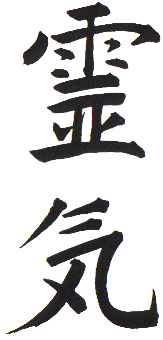Reiki's Lineage
Mikao Usui, considered the father of Reiki, was given the gift of Reiki in 1922 after a 21-day fast upon Mt Kurama, a sacred mountain north of Kyoto Japan. He practiced Reiki on himself, family and friends before sharing his teachings with students and opening his first Reiki clinic. In 1923, a devastating earthquake struck Tokyo. Usui and his students offered Reiki to the many victims. To meet the great demand of treating the injured, he started teaching a simplified, universal form of Reiki to the public. He trained more than 2,000 students and initiated twenty to the Master level, to include Dr Hayashi.
After being trained by Usui, Dr Hayashi, once a medical doctor in the Navy, opened his own practice and developed the hand positions that are used today.
Hawayo Takata became severely ill and suffered a mental breakdown. After her sister's passing, she traveled to Japan to seek healing from Reiki practitioners. After amazing results, she learned Reiki and worked closely with Dr Hayashi. She then returned to her home in Hawaii and established the foundation there. She is responsible for bringing Reiki to the West.
What happens in a Reiki session?
I will administer a Reiki treatment in a peaceful, private setting. However, the treatment can take place anywhere. During a session, you will lie on a table with a pillow and blanket fully clothed. Please wear comfortable, loose clothing.
I will begin by asking you questions about what you'd like to achieve and any areas of concern. If you have specific emotions that may be tied to a certain ailment, I can help you release the emotion so that you can begin healing.
I will begin by placing my hands on your feet to ground the energy and then place my hands lightly on or your head and over your limbs, and torso for a few minutes. I will continue this process as many times as needed.
During the session you may report that my hands feel hot or are tingling. I will hold each hand position until I sense that the energy has stopped flowing and move to a different location.
You may see colors, visions, hear sounds, feel hands where mine are not (phantom hands), and feel emotions release, or experience nothing at all during the session. If this happens, do not be alarmed. Some people are more sensitive than others and it doesn't mean that it didn't work.
Health benefits
According to practitioners, Reiki channels universal energy known as ki, pronounced "chi." This is the same energy involved in tai chi exercise.
This energy permeates the body, and some can feel it. There have been instances where people didn't feel the energy, but it doesn't mean that the energy isn't working. Some people are more sensitive than others. You don't even have to believe to have Reiki work. Reiki is intelligent energy and goes to the greatest good and does no harm.
Reiki aids in relaxation, assists in the body's natural healing processes, and develops emotional, mental, and spiritual well-being. Reiki can induce deep relaxation, help people cope with difficulties, relieve emotional stress, and improve overall well-being.
Conditions that people have used Reiki to help treat include:
Migraines
Body injuries
Cancer
Heart disease
Anxiety
Depression
Chronic pain
Infertility
Neurodegenerative disorders
Autism
Crohn's disease
Fatigue
Increase immune system
Release stuck emotions
It is important to note that Reiki should never take the place of medical treatments.
However, people living with certain health conditions may be interested in trying Reiki alongside their regular treatment. For instance, some people with cancer may find Reiki beneficial as it may help them relax. The gentle nature of Reiki therapy may have a soothing effect on patients who find that they become overwhelmed with invasive therapy, fear, and stress.
Individuals report different experiences. Some say that the practitioner's hands become hot, others report cooling hands, and some feel pulsating waves. The most common reports are of a release of stress and deep relaxation.
|


